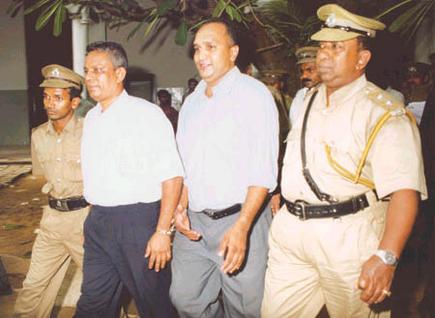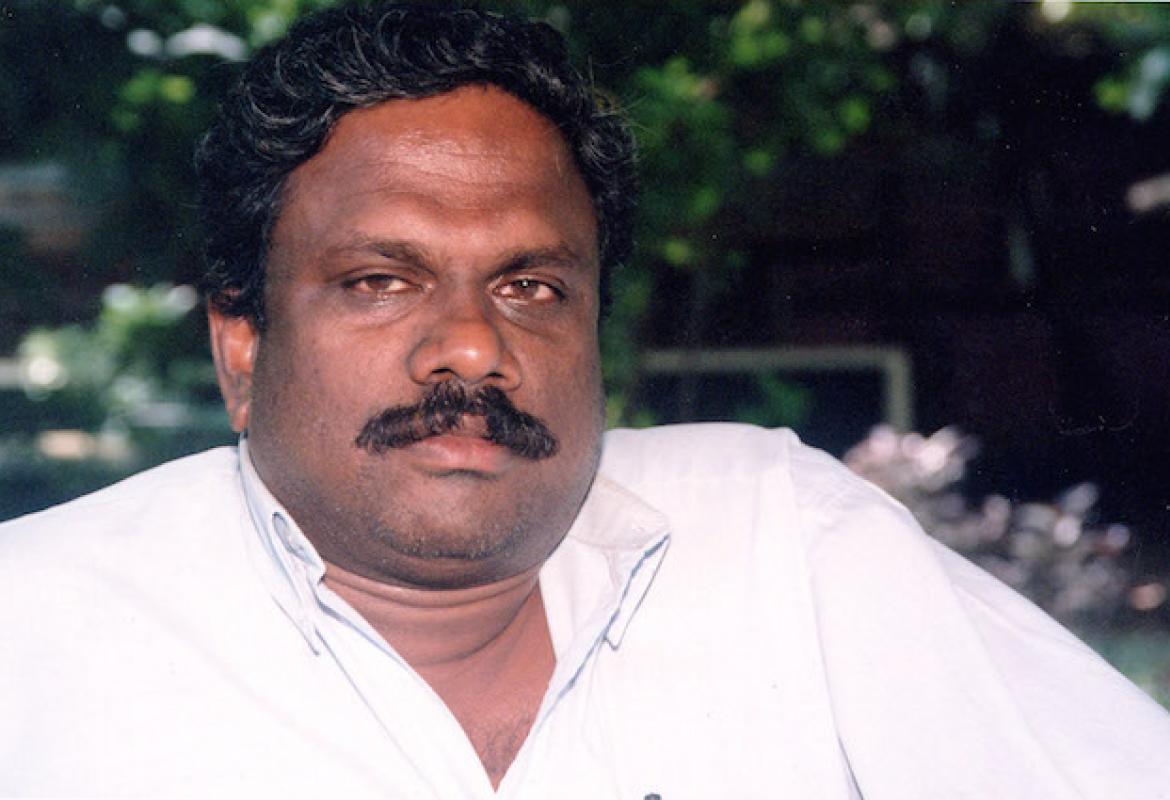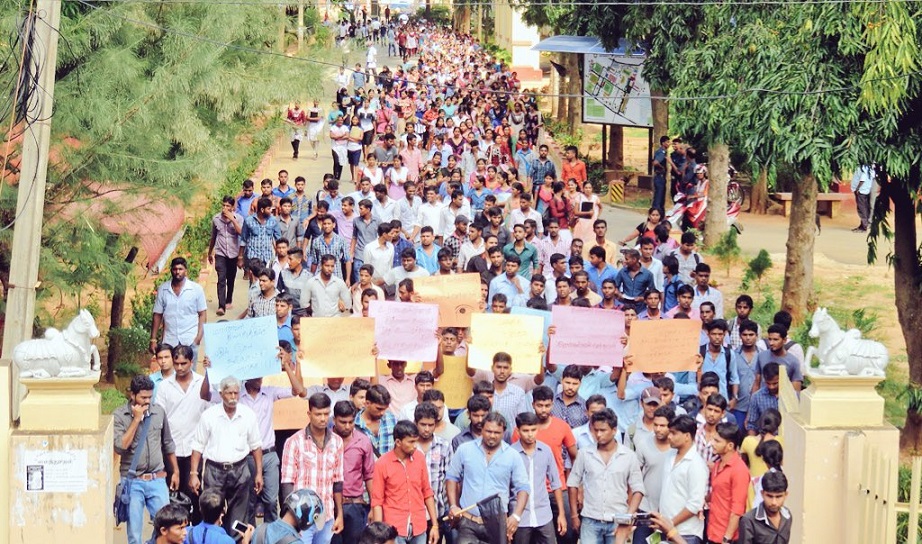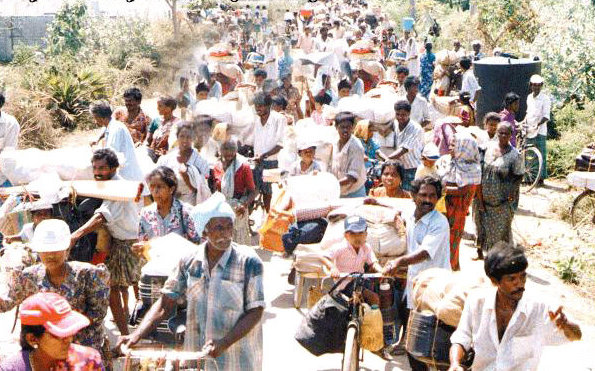 |
|
Police officers who were convicted but then released on appeal for the massacre of Tamil political detainees in 2000 (Virakesari)
|
Fifteen years ago an armed mob of Sinhala villagers stormed a rehabilitation centre and killed at least 28 Tamil youths, as security forces stood by and even joined in.
The centre in the southern town of Bindunuwewa was jointly run by several bodies, including the Presidential Secretariat, under then-president Chandrika Kumaratunga, the Child Protection Authority, the Ministry of Defence and the Ministry of Rehabilitation and Reconstruction.
Dozens of Tamil youths in their late teens and early twenties were held here on suspicion of supporting the Liberation Tigers of Tamil Eelam, supposedly undergoing rehabilitation for a few months before their release. A few days before the massacre, detainees protested against prolonged detention, sometimes over a year, and the deliberate withholding of letters from relatives by the authorities.
The next morning a mob of local Sinhalese, reported by UTHR to be 2,000 strong, had formed outside the detention facility. They entered the centre and attacked the inmates with knives, machetes, clubs and iron rods, and set fire to the residence halls. Police officers stood by and in at least one instance opened fire on the inmates. A military detachment in the area was also withdrawn the previous day, indicating a premeditated attack.











